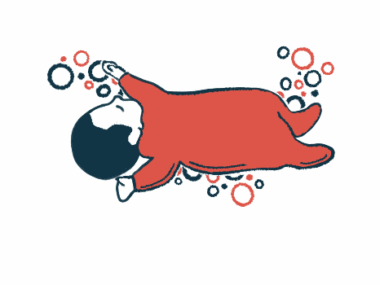Encoded Earns $104M in Financing to Advance Potential Gene Therapy for Dravet
Written by |

Encoded Therapeutics will further develop its lead precision gene therapy platform for Dravet syndrome and other severe genetic disorders after a financing round brought in $104 million from several investors.
The company’s goal is to receive approval and market this platform, which aims to overcome key limitations of current gene therapy technology.
“Our mission is to develop and commercialize life-changing therapeutics for severe genetic disorders that are not addressable with existing gene therapy approaches,” Kartik Ramamoorthi, PhD, co-founder and chief executive officer of Encoded, said in a press release.
“The support we have received from this visionary group of investors will allow us to develop into a fully-integrated therapeutics company and establish Encoded as a leading innovator in gene therapy,” Ramamoorthi added.
Most Dravet patients (70–80%) carry mutations in the SCN1A gene, which provides instructions for making one part (the alpha subunit) of a sodium channel called NaV1.1. This sodium channel is found on the surface of nerve cells, and is essential for the generation and transmission of electrical signals in the brain.
Gene therapies are viewed as a potential way of ably treating diseases with an underlying genetic cause. Most rely on the use of inactivated viruses, namely adenoviruses (AAV), which, upon infection, can introduce the gene of interest into a target cell.
However, some particular challenges arise in developing a suitable gene therapy for Dravet syndrome. One is that the SCN1A gene exceeds the packaging capacity of AAV, another is because targeting the necessary type of nerve cell, called GABAergic inhibitory interneurons, can be difficult.
Encoded uses genomics and computational methods to identify the regulatory elements that allow gene delivery to specific cell types, namely GABAergic inhibitory interneurons. This increases the therapy’s efficacy and improves its safety.
Incorporating the regulatory elements into the AAV induces robust expression of the SCN1A gene, delivering therapeutic doses that are well-tolerated, the company reports.
Recent preclinical results were presented in a scientific poster, “A GABA-Selective AAV Vector-Based Approach to Up-Regulate Endogenous Scn1a Expression Reverses Key Phenotypes in a Mouse Model of Dravet Syndrome,” during the 2019 Annual Meeting of the American Society of Gene & Cell Therapy (ASGCT) held in Washington, D.C. [abstract page 420, No. 519].
A single injection of Encoded’s gene therapy into the brain of a mouse model of Dravet increased the levels of SCN1A and of sodium NaV1.1 channels in GABAergic interneurons located in a brain region called the hippocampus (known to be linked to memory and spatial navigation).
The gene therapy also eased both the frequency and severity of seizures in the mice. Most importantly, it lowered the animal’s risk of sudden unexpected death in epilepsy (SUDEP), with animals living equally long as healthy, wild-type control mice. Dravet mice that did not receive the gene therapy died during this 10-month period.
“[O]ur findings support the development of a one-time, disease-modifying therapeutic, capable of restoring Nav 1.1 channel homeostasis [balance] within the affected cell type, correcting for GABAergic circuit dysfunction, and reversing multiple hallmark symptoms of [Dravet syndrome],” the researchers wrote.
“By moving gene therapy beyond its current limitations, Encoded is poised to become a leader in the field,” said Bryan Roberts, Ph.D., partner at Venrock, one of the shareholders of Encoded.
“We are pleased to join this distinguished group of investors in supporting Encoded’s efforts to bring new gene therapies to diseases that can’t be reached with existing therapeutics,” he added.





